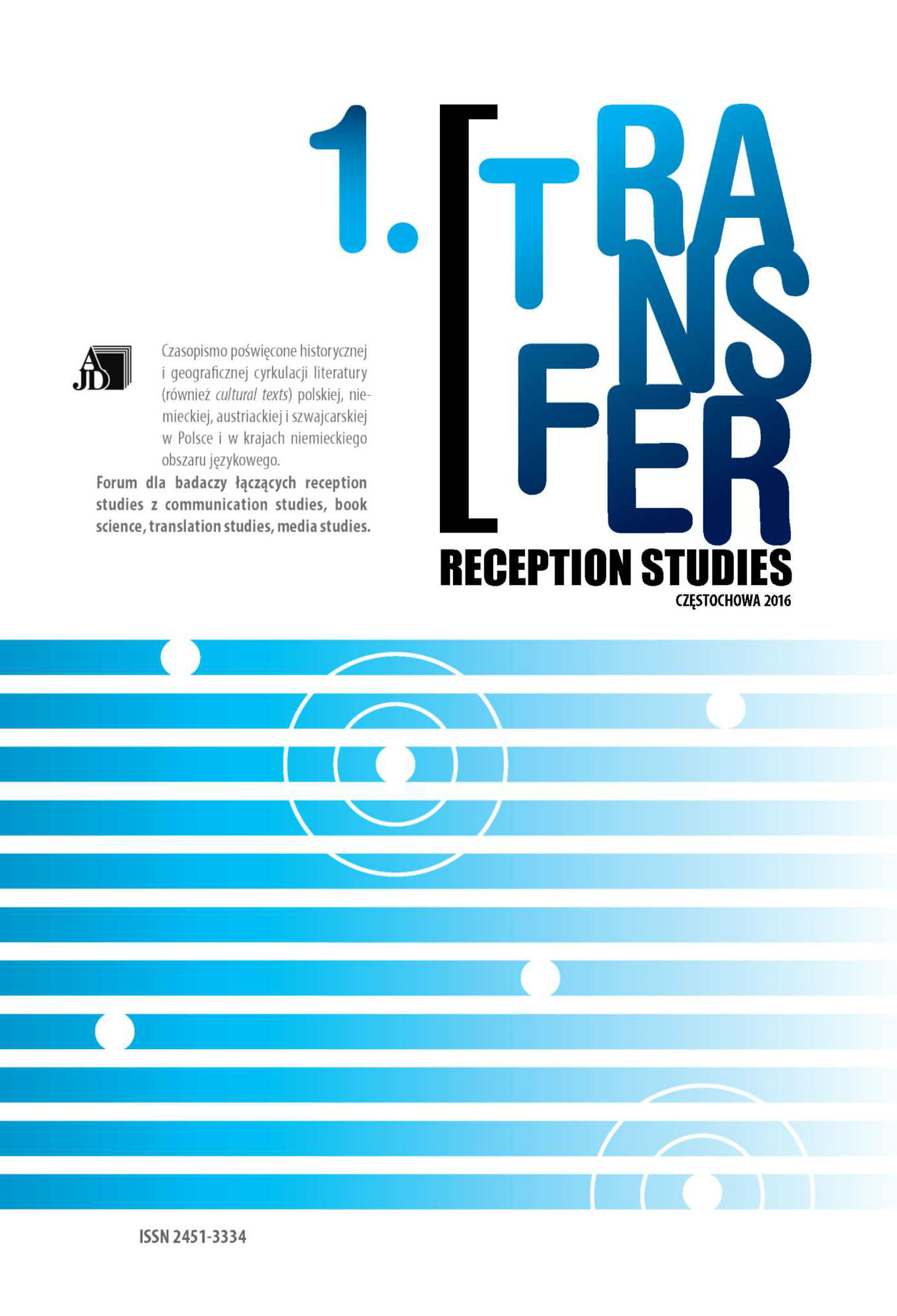Milczenie werblisty, czyli Günter Grass w ocenie prasy niemieckiej i polskiej po śmierci
The silence of a drummer – Günter Grass and his literary output as posthumously evaluated in the Polish and German press
Author(s): Aneta JurzystaSubject(s): Language and Literature Studies, Studies of Literature
Published by: Uniwersytet Jana Długosza w Częstochowie
Keywords: Günter Grass ; death ; reactions of media ; german literature
Summary/Abstract: The article analyses reactions of both Polish and German media observable after the death of Günter Grass – one of the most accomplished German writers, the Nobel Prize laureate connected with the city of Gdańsk. The death of the controversial writer became another occasion for interpretation and evaluation of his numerous works, but also for a return to his turbulent biography and the discussion over his unspoken of and kept secret service in the SS. An analysis of the earliest pieces of information about the author’s death included in German and Polish electronic sources indicates that there is a significant difference between the evaluation of the deceased writer in his homeland and in Poland. All of articles analysed refer to the basic facts from Grass’ biography, call him one of the greatest contemporary authors and a great German, while The Tin Drum is perceived as the novel of the century. In both countries his social involvement, his political activity within SPD, and his support for Polish-German reconciliation are appreciated. However, the German press stresses more frequently the controversies surrounding Grass, the critical discussions after the publication of Too Far Afield, doubts surrounding Grass’ reception of the Nobel Prize in Literature, or the global outrage after Grass’ confession of having served in Waffen-SS. “Die Zeit” and “Der Spiegel” remind the readers of the negative commentaries after the 2012 publication of the poem “What must be said”. Politicians and artists expressing their opinion recall Grass as an extraordinary figure, a merciless moraliser, a critic and provoker, and at the same time an unrivalled model for numerous writers, their authority and inspiration. Although many articles stress linguistic mastery and the rhythmic quality of Grass’ prose, as well as the significance and the message of his most famous works, it is the writer’s political activity that overshadows the literary one from the perspective of his countrymen. In comparison, the evaluation of the life and work of the writer presented immediately after his death in the Polish press appears to be much different. People quoted concentrate on Grass’ connections with Gdańsk, on his ongoing efforts to improve the Polish-German relations, which could be seen both during his visits to Poland and in his prose. Although the controversial subjects, such as the long-kept-in-silence cooperation with Waffen-SS or violation of national myths, are signalled, but they are overshadowed by Grass’ literary achievements and activity, at least in the view of the authors of the articles analysed and the writers quoted by them. In the Polish press – unlike in the German one – the deceased Nobel Prize laureate from Lubeck remains, first of all, an accomplished writer, not a controversial politician.
Journal: Transfer. Reception studies
- Issue Year: 1/2016
- Issue No: 1
- Page Range: 71-89
- Page Count: 19
- Language: Polish

